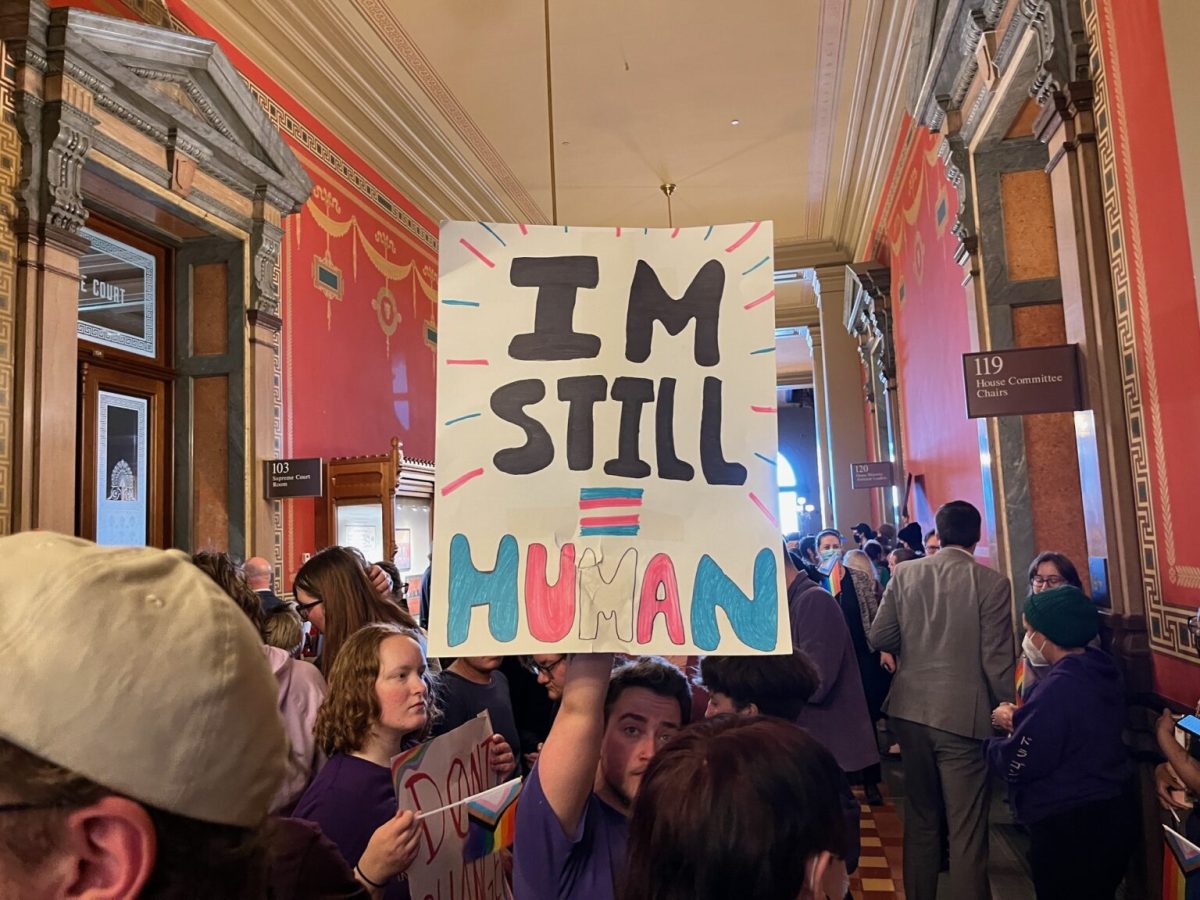If you’re expecting the next “Kids” from MGMT’s new album, “Loss of Life”, you’re not exactly going to find what you’re looking for. It seems the band has moved on. Does that mean we should too?
You’ve probably heard MGMT’s big hits: “Kids,” “Electric Feel,” “Little Dark Age,” and “Time to Pretend,” especially if you’ve ever been on TikTok, seen the 2023 film Saltburn, or watched Gossip Girl. (No, I’m not embarrassed to admit my music taste stems from watching that show in middle school.)
MGMT has a reputation for making music that’s… well, weird. But we can call it experimental.
Take “Boogie Down,” for example, from their first EP released in 2005 with its spacey and dystopian alert-sounding intro and lyrics like, “Bombing up the place like you own it” and “Girl, you know I wanna check out your components.”
Sonically, “Loss of Life” is notably less odd. Lyrically, it’s true when they say, “Nothing Changes.”
Speaking of which, that comically incorporated title belongs to the album’s six-and-a-half-minute power ballad and personal favorite of mine. It features an extended instrumental intro and feelings of dread and doubt.
The mood turns around with a triumphant trumpet bridge that transitions to a more hope-filled section offering a solution to an iconic tale of Greek mythology: “Sisyphean daily life… Push the boulder off to the side.”
Another one of my favorites from the album is the direct predecessor to “Nothing Changes,” called “Nothing to Declare.” (Could it be said this album is, “A Whole Lot of ‘Nothing?”)
A single released on Jan. 11, “Nothing to Declare,” is your classic existential rambling, and I’m here for it. It sits with its happier-sounding sister, “Mother Nature,” at the top of my album ranking.
The song’s opener, interestingly entitled “Loss of Life (part 2)”, was most surprising and underwhelming to me. The piece is a recitation of a poem, spoken rather than sung, and I am not a fan of when artists speak over an instrumental backing, especially for an entire song. The “instrumental” accompaniment, however, is probably the most reminiscent of their past production choices.
While their catchy synth hooks have been celebrated in the past, “Loss of Life” carries a theme of growing up and growing out of old habits. Across this album, the synth embellishments feel like an afterthought; they just seem unnecessary.
The best example of this is “Dancing in Babylon,” a collaboration with Christine and the Queens. For the most part, the work is fairly stripped down, featuring acoustic guitar, percussion, and some really nice vocal harmonies. The bridge even has a bare section of just keyboard and vocals. The electronic sounds at the beginning of the piece, between the first chorus and the second verse, and right at the end feel out of place, and I honestly wish they had left them out.
Overall, this album surprised me, and not in a bad way. You would expect a work of this title to depress you, but it’s really quite optimistic despite some more somber moods.
The band described their work in an Instagram post announcing its release.
“It is an album that brandishes the power of love in the face of inevitable human death and decay, and hopes to encourage collective comfort in remembering the universe’s inextinguishable yet often brutal desire to find balance and harmony,” they said, and I would have to agree.
As with their previous releases, it’s clear the band both had fun and had something to say when making this album. And I enjoyed listening to it.
Do I think “Loss of Life” is groundbreaking and poised to break every record in the book? No. But do I think it’s a good album for passengers to listen to during a long car ride on an overcast day while they stare out a side window and contemplate life? Yes, and we need that kind of music, too.















